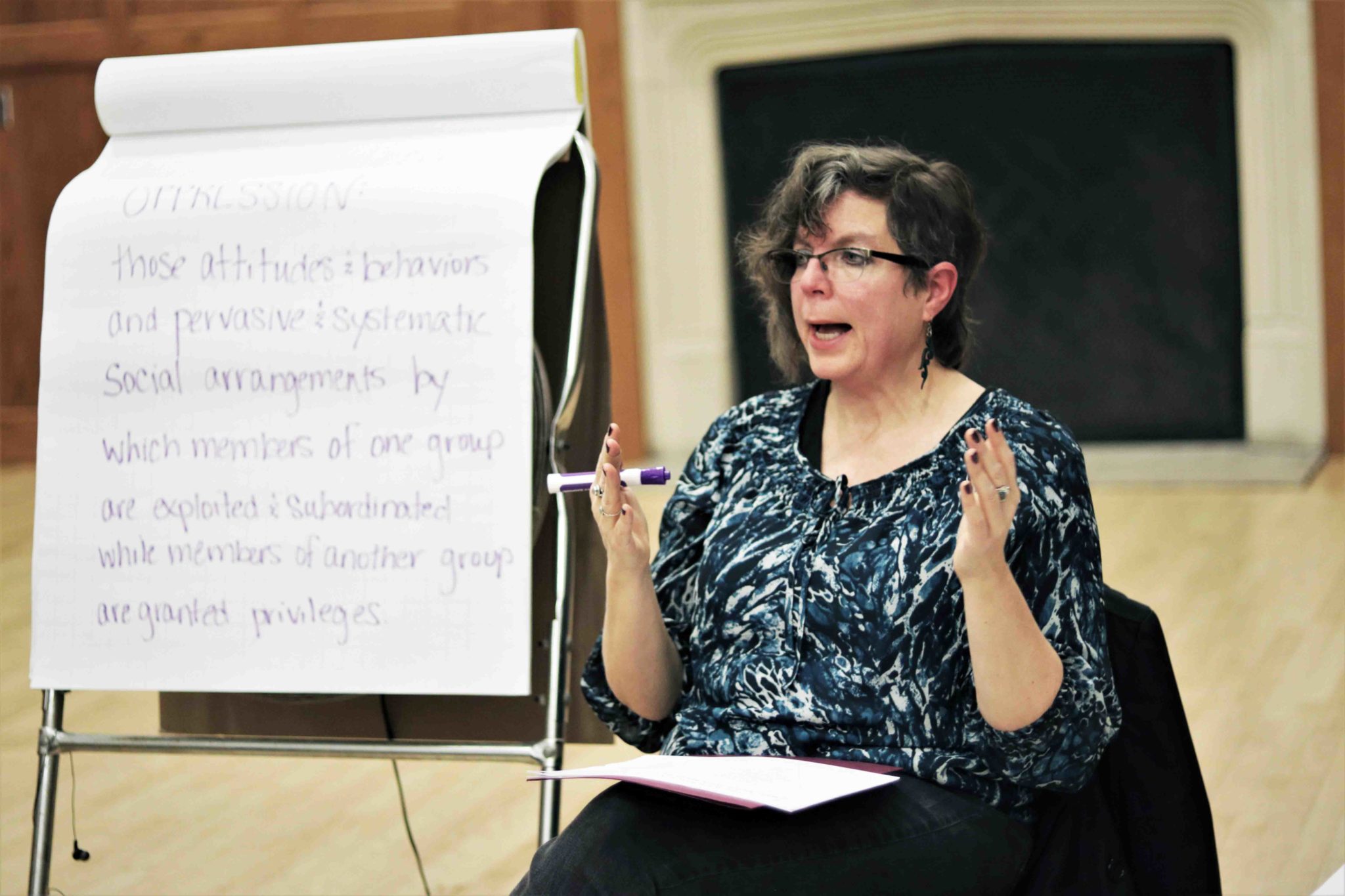
In honor of the work of Martin Luther King Jr. and Liberation Week, Dwight Hall and the Afro-American Cultural Center co-hosted a series of events this week, including a workshop on racism last night attended by eight community members.
“Racism is really evasive, and it adapts and changes,” said Barb Mangle, an activist and former professor at Quinnipiac University who ran the workshop. “Most of us think about racism as something that disadvantages people of color, but you can’t have a group of people who are disadvantaged without a group of people who are advantaged.”
The workshop focused on the role racism plays in our society and the phenomenon of white privilege. It began with a set of ground rules set forth by the attendees that emphasized the importance of balancing passion and reason, speaking from personal experience and speaking truth to power. This was followed by a group exercise which focused on how to address racism when it comes up in conversation, a discussion of the race-based assumptions that exist in society and a brief lecture on privilege from Mangle.
Attendees included Yale alumni, activists, community members and even self-proclaimed “revolutionary” George Edwards, who was a member of the Black Panther Party.
It was Edwards who brought up the concept of speaking truth to power.
“Speaking truth to power means speaking without fear,” he said. “You cannot deny reality, you can distort reality and you can have all sorts of interpretations, but truth spoken challenges power.”
The workshop underscored the idea that racism exists beyond individual acts of discrimination as a deeply institutionalized aspect of our society. The attendees discussed the many arenas of public and private life in which race can play a defining role — from schools and churches to businesses and prisons.
“We all are [racist] because we have grown up in a society where we are immersed in racist messages and stereotypes, and we have internalized those, whether we have wanted to or not,” Mangle explained. “Our society has the embedded notion that whiteness is goodness.”
She added that society is constructed to prevent people in positions of privilege from recognizing their own privilege. Only at the end were attendees given a list of specific calls to action, including ways to discuss racism with people who don’t see it as major issue.
One attendee, Jackie Trimble Shapiro, said that, while she was disappointed with the meager turnout, she appreciated the opportunity to discuss issues of race.
“I think acknowledging white privilege is very uncomfortable,” she said. “I hope that these kinds of conversations can be held more frequently . . . and it might register how much they are needed.”
The first Martin Luther King Jr. Day was observed in 1986.
Niki Anderson | niki.anderson@yale.edu







